


Salesforce Knowledge Article
Differences Between IoT and Big Data
Our lives are surrounded by technology at every turn. With microchips becoming ever smaller, cheaper and more readily available, these tiny networked computers are finding their way into nearly every nook and cranny of our world.
In addition to the obvious omnipresent smartphones and personal computers, our cars, television sets, traffic lights, wristwatches, microwave ovens, refrigerators, thermostats and even light bulbs are becoming computerized and networked.
Internet of Things (IoT) Growth Statistics
Conservative estimates indicate that by the year 2020, there will be over 50 billion everyday objects in this vast, connected “Internet of Things” (or IoT). This sector is growing at a lightning pace, and according to the technology research and advisory firm Gartner, global revenue generated by the Internet of Things will exceed $300 billion within three years.
IoT produces data, and lots of it. By the year 2020, experts estimate that anywhere from 44 trillion to 600 trillion gigabytes of data will be produced annually by the devices that comprise the Internet of Things. This data consists of text, image, audio and video, and ranges from usage statistics to sensor output to weather and GPS data and well beyond.
This enormous collection of raw information is known as “big data,” and it has the potential to impact our day-to-day lives in a very big way.
Making Sense of IoT Big Data
It might help to think of big data extracted via IoT processes as the digital equivalent to crude oil: The raw stuff isn’t much use. But with refinement, the end product has revolutionary potential to yield immense profit and benefit.
Among the challenges faced is the question of how to extract value from this stream of crude data, in terms of both finance and usefulness. After all, without some way to make sense of it, big data is nothing but a bunch of letters and numbers. Scientists, academics, and technologists across the globe are tirelessly working on developing the hardware and software architecture, storage methods, and algorithms needed to process, store and utilize all of this IoT information.
Once you’ve filtered and organized all of this big data, what can you do with it? The potential applications are many and varied. Medical science, urban planning and development, education, traffic optimization, political science, astronomy and cosmology, climatology and biology are just some of many industries and sectors that can benefit from information distilled from big data analytics.
On a more personal and individual level, the information that our IoT devices collect about us and our usage habits can be processed and fed back into our devices to provide us with a more optimized, personalized user experience.
For example, imagine your smartwatch recognizing long-term patterns in heart rate and other detectable factors and alerting you to the possibility of a potentially fatal disease. Or consider sensors embedded in automobiles that can detect location and speed and relay that information en masse to traffic control systems to optimize the flow of rush hour traffic.
In the near future, when you walk into the grocery store with your smartphone in your pocket, it will be able to communicate with the store itself and direct you toward sales on items that you’re likely to need. On your way home, the GPS in your smartphone or automobile will communicate with servers and learn that traffic is jammed a few miles ahead on your usual route and alert you to recommend a different route.
These are just a few of the many possibilities that are only beginning to be explored in regards to IoT big data.
Put the Internet of Things & Big Data to Work for Your Business
The Internet of Things and big data are parallel and symbiotic – in fact, some technologists call them “two sides of the same coin.” The billions of interconnected IoT devices feed their raw data into a big data analytics system to be analyzed, refined and fed back to your IoT device to find ways to benefit you, your business and society as a whole.
This technology is still in its infancy and only beginning to be explored, but the progress made thus far is promising and very exciting. Only time can tell what this technology has in store for us, but if the past few years of progress is considered, the future of the Internet of Things and big data is bright indeed.
If you’d like to learn more about how your organization can leverage the power of IoT and big data to boost profits and success, contact the highly skilled IoT consultants at Ad Victoriam Solutions. Based in Atlanta, Georgia, our expert can find you the right IoT solution through platforms like Microsoft, Amazon, Salesforce and more.

